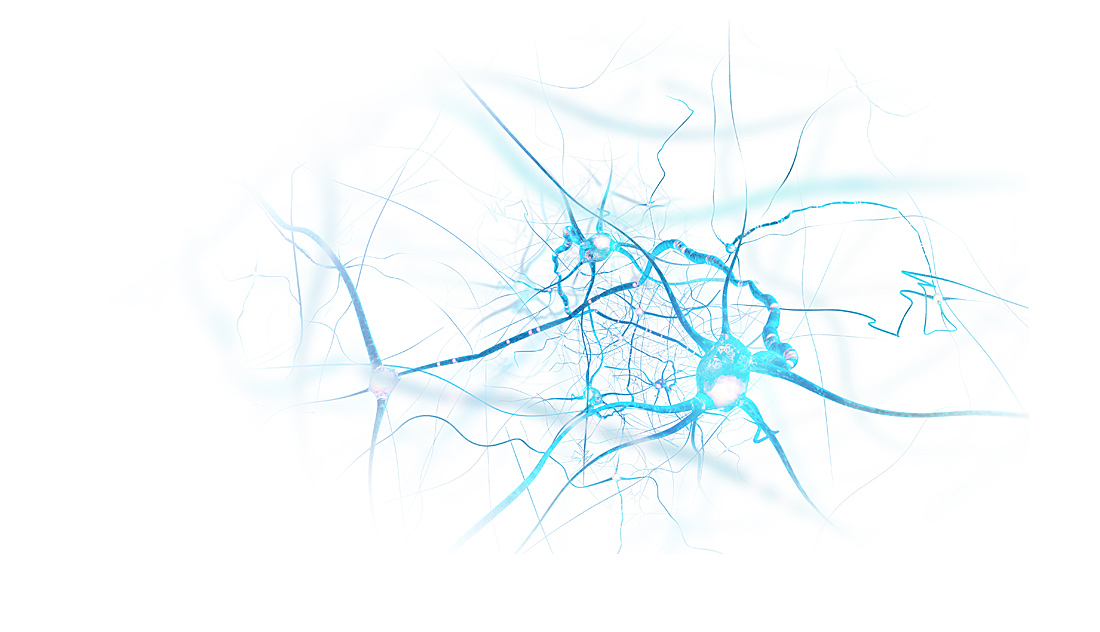神経集中治療
Neurointensive Care神経集中治療とは ~新たなステージの始まり~


重症患者に対する集中治療の最終目標は社会復帰や日常生活への復帰です。治療後の生命転帰の改善だけではなく、それらに応じた神経学的転帰良好を目指す必要があります。どのような疾患であっても、原疾患や全身状態が脳に及ぼす影響「二次性脳障害の防止」を理解した上で治療を計画することが重要であり、神経学的転帰改善を目指した脳指向型の集中治療を考える必要があります。
これまで重症頭部外傷、脳卒中、てんかん重積状態、心停止後症候群、脳炎・脳症、神経筋疾患などに対して、原疾患の治療に加えて「二次性脳障害の防止」を念頭に入れた治療が集中治療医および神経系の専門医を加えた多職種チームによって行われてきました。現在この概念は、エビデンスの積み重ねにより、中枢神経系疾患に留まらず、全ての集中治療が必要な重症病態でも「二次性脳障害の防止」について考えていかなければならないことが分かってきています。
そのような意味から、神経集中治療とは、「重症の脳・神経疾患に加えて、疾患の種類にかかわらず二次性脳障害を起こしうる病態に対して脳指向型管理を実践し神経学的転帰改善を目指した集中治療」と定義することができます。
疾患横断的に集中治療を担当するすべての医療職が、常に重症の脳・神経疾患に対する治療と「二次性脳障害の防止」について考え、実践できる環境を整え、普及・啓発していくのが神経集中治療委員会の役割です。神経集中治療という新たなステージが始まりました。
委員会名簿
過去の委員会名簿
神経集中治療委員会 Neurointensive Care
2023年度
| 委員長 | 一二三 亨 | 聖路加国際病院救急部 |
| 副委員長 | 野田 浩太郎 | 国立研究開発法人 国立循環器病研究センター脳血管内科 |
| 委員 | 則末 泰博 | 公益社団法人地域医療振興協会 東京ベイ・浦安市川医療センター救急集中治療科(ICU/CCU/SCU) |
| 江川 悟史 | TMGあさか医療センター神経集中治療部 | |
| 星山 栄成 | 学校法人獨協学園 獨協医科大学病院救命救急センター | |
| 横堀 將司 | 日本医科大学付属病院救急部 | |
| 末廣 栄一 | 国際医療福祉大学成田病院脳神経外科 | |
| 井上 明彦 | 兵庫県災害医療センター救急部 | |
| 黒田 泰弘 | 香川大学医学部附属病院救命救急センター | |
| 近藤 豊 | 学校法人 順天堂 順天堂大学医学部附属浦安病院救命救急センター | |
| 石田 裕介 | 東京医科大学病院麻酔科 | |
| 担当理事 | 黒田 泰弘 | 香川大学医学部附属病院救命救急センター |
神経集中治療委員会 Neurointensive Care
2022年度
| 委員長 | 木下 浩作 | 日本大学医学部附属板橋病院 救命救急センター |
| 副委員長 | 一二三 亨 | 聖路加国際病院 救急部 |
| 委員 | 則末 泰博 | 東京ベイ・浦安市川医療センター 集中治療部 |
| 江川 悟史 | TMGあさか医療センター 神経集中治療部 | |
| 星山 栄成 | 獨協医科大学病院 救命救急センター | |
| 横堀 將司 | 日本医科大学付属病院 救急部 | |
| 末廣 栄一 | 山口大学医学部附属病院 先進救急医療センター | |
| 井上 明彦 | 兵庫県災害医療センター 救急部 | |
| 黒田 泰弘 | 川大学医学部附属病院 救命救急センター | |
| 近藤 豊 | 順天堂大学医学部附属浦安病院 救命救急センター | |
| 担当理事 | 黒田 泰弘 | 香川大学医学部附属病院 救命救急センター |
事業計画
Ⅰ.目標神経集中治療の広報活動を継続的に行い、教育目標を明確にして神経集中治療に関わる知識を広める。
Ⅱ.年間活動計画
1.ホームページで、神経集中治療委員会ページの充実を図る。
2.神経集中治療に関わる最新情報を発信しする。
3.神経集中治療に関する意識調査等を行う。
トピックス
-
2024/08/22お知らせ井上明彦委員より寄稿「神経集中治療のはじめの一歩~脳と脳以外の臓器の違いから神経集中治療を考える~」
-
2024/01/09お知らせ則末泰博委員より寄稿「神経集中治療でACPを利用する覚悟はありますか?」
-
2024/01/04お知らせ一二三亨委員長より寄稿「ECPRの未来」
- 2023/11/22お知らせ
-
2023/08/17お知らせ石田裕介委員より寄稿「せん妄(集中治療室におけるせん妄の現状とこれから)」
-
2023/04/26お知らせ野田浩太郎委員より寄稿「神経集中治療=Neurology×Intensive care medicine」
-
2023/01/25お知らせ近藤豊委員より寄稿「敗血症性脳症」
-
2022/12/6お知らせ末廣栄一委員より寄稿「脳神経外科医から見た神経集中治療」
-
2022/8/23お知らせColumbia University Irving Medical Center Neurological ICUに留学中の江川悟史委員より寄稿
「神経集中治療:これまでの10年、これからの10年」 -
2022/7/6
お知らせ
神経集中治療委員会による「神経集中治療に関する現状調査」を日本集中治療医学会雑誌に掲載しました(https://www.jstage.jst.go.jp/article/jsicm/29/1/29_29_55/_pdf/-char/ja)。
神経集中治療委員会に最も望むこととして、約半数がガイドライン作成と回答していただいた結果を踏まえ、ガイドライン作成に向けて準備を進めてまいります。- 2022/1/5お知らせ
第49回日本集中治療医学会学術集会にて委員会企画のシンポジウム(神経集中治療アンケート調査報告 )を行います。- 2022/1/5お知らせ
神経集中治療 (神経集中治療委員会)のホームページを公開しました。 - 2022/1/5お知らせ
セミナー開催案内
※最新のセミナー情報はこちら
-
2024/3/7お知らせ若手教育オンライン講演会が開催されます。
神経集中治療最新のエビデンスを交えながら、日常臨床などの疑問に対するtips等を披露し、若手向けの講義を行っていく。
日程: <e-learning>
第1回:2024年4月1日~2024年4月30日
第2回:2024年7月1日~2024年7月31日
第3回:2024年10月1日~2024年10月31日
第4回:2025年1月1日~2025年1月31日
- 2023/12/25お知らせ
2024年2月11日(日)神経集中治療ハンズオンセミナーが開催されます。
今回は京都での集合型ハンズオンセミナーです。 - 2023/12/25お知らせ
セミナー開催報告
準備中
過去のセミナー
-
2023/10/16お知らせ2023年12月16日(土)神経集中治療ハンズオンセミナーが開催されます。
今回は埼玉での集合型ハンズオンセミナーです。 -
2023/02/02お知らせ2023年3月5日(日)神経集中治療ハンズオンセミナーが開催されます。
今回は京都での集合型ハンズオンセミナーです。 -
2022/9/16お知らせ2022年11月19日(土)神経集中治療ハンズオンセミナー オンラインコースが開催されます。
教育コンテンツ
□ショートレクチャーVol.1「経頭蓋超音波検査」
神経集中治療には欠かせないエコースキルです。
神経集中治療委員会主催のハンズオンセミナーでは、
経頭蓋超音波検査についてもじっくり学習することができます!

Neurological care -the dawn of new era
The ultimate goal of intensive care for severely ill patients is rehabilitation to allow a return to society and resumption of daily activities.
Rather than just achieving an improvement in the post-treatment outcome of life, we need to aim for good neurological outcomes that enable a return to daily activities.
It is important to plan treatment for all diseases with a full understanding of how prevention of secondary brain injury impacts the primary disease and the condition of the entire body.
We therefore need to consider n eurocritical care aimed at improving neurological outcomes.
To date, multidisciplinary teams including intensivists and neurology specialists have treated the primary disease and managed patients with a view to preventing secondary brain injury in severe t raumatic br ain injuries, stroke, status epilepticus, post-cardiac arrest syndrome, encephalitis and encephalopathy, neuromuscular disease and other conditions.
Evidence is accumulating to support the concept that prevention of secondary brain injury is not only relevant to CNS diseases, but should be considered for all serious conditions requiring intensive care.
As such, it is possible to define neurocritical care as intensive care aimed at providing neu rocritical care and improving neurological outcomes for severe brain and neurological diseases and also for conditions where secondary brain injury may occur regardless of the type of disease.
The role of the Neurocritical Care Committee is to always consider how all healthcare roles responsible for intensive care across a wide range of disease types can treat severe brain and neurological diseases and prevent secondary brain injury, and to establish environments for this to be put into practice and promote education on and uptake of this approach.
We are entering a new era in neurocritical care.










